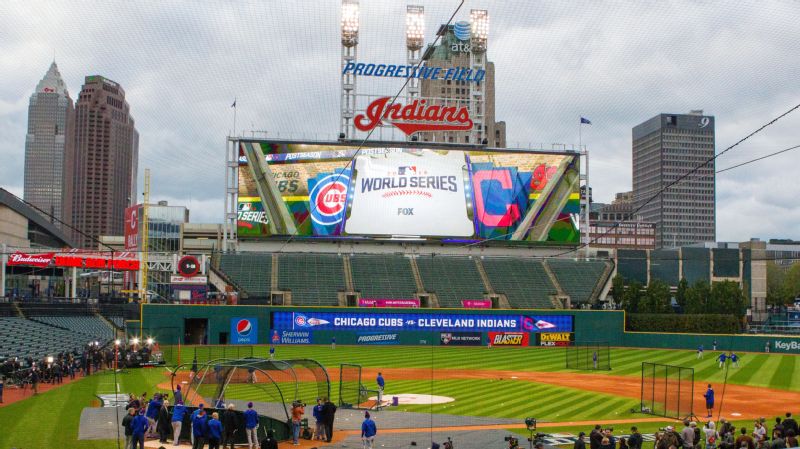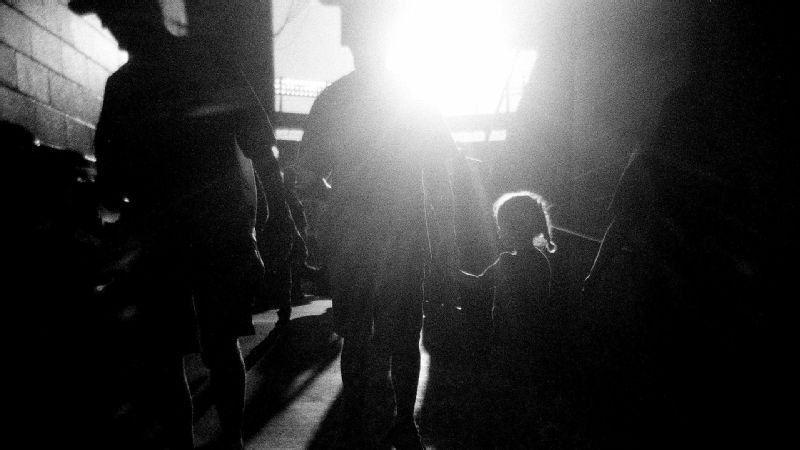
Members of the media surround the field as the Chicago Cubs workout in preparation for the 2016 World Series between the Chicago Cubs and Cleveland Indians at Progressive Field in Cleveland, OH.
Cubs fans know well the space between hope and disappointment. After all, they have been waiting for this day for 71 years — a lifetime.
What happened in the space of those seven decades? Baseball unionized. Baseball became racially integrated. Ballplayers broke records. And the Cubs never made it past the playoffs.
Something else happened in that space. Gargantuan legends grew from one goat, and each year proved, for the Cubs at least, that a curse was real.
By making it to the World Series, the Chicago Cubs have shown us how quickly things can change and let us believe that perhaps nothing is doomed after all.
Baseball can be a slow game to watch, but it offers us something that other sports do not. In its slowness, it offers us space.
The space of baseball is what makes superstition possible; there is room for story. There is time for each player to settle into their body before the pitch: the batter adjusts his gloves, the pitcher collects his thoughts, the outfielder inhales.
Then, action — the bat hits, the glove catches, the ball falls. Hope and reality collide in the moment between the pitcher’s throw and the batter’s swing. For the fans, those seconds before the ball lands can feel like tension, and spectators become almost still as they wait.
Of course, we never experience true silence, especially not at a major league baseball stadium, where every pause is a moment for commercialism to offer us something, for a T-shirt gun to explode into the stands, for an organ to resound.
Yes, there is more noise these days than ever. Yet underneath the roar of a crowd is something like silence. My brother attended Saturday’s pennant game, and he said he was so caught up in the electricity of the crowd that he forgot to open his peanuts until the third inning, and everyone stood for the entire game.
This essay is not about silence; it is about pause. Between the pitches are pauses that help all restless bodies to be still, even for a moment.
It is in the stillness that we learn to pay attention. Cubs fans have taught us to be unwavering in their dedication. For 71 years, they have watched as their team struggled. Then, suddenly, the spell is lifted; maybe there are no spells, after all.
This lifted curse could be the spell-breaker we need in order to see that the world has enough magic, that anything is possible. It’s exhilarating; it has the underdog feeling of March Madness, the triumph of ancient mythology. What will happen if we pay attention to it?
We will learn that nothing is permanent, and that things are always possible, and changing. We will become so captivated by the energy of a game that we will be present for it. We will forget to open our peanuts.
When we watch the World Series this week, we can remember that no matter how bleak it looks, there is always chance for the spell to be broken.
Carrie Ann Welsh is a writer based in Wisconsin.





